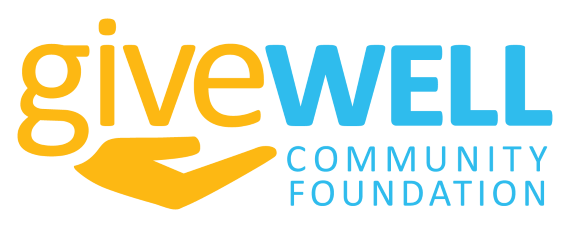Giving cash versus stock, dealing with family disagreements, and what’s in the news
Gifts of cash or stock: Is it a toss up?
As your philanthropic clients can likely attest, the going has been rough lately for many of the nonprofit organizations they support. Turbulent economic conditions, concerns about inflation, and challenges in the banking sector are just a few of the factors that are causing donors to be more financially conservative and perhaps begin to evaluate whether to keep their charitable giving at the same level of years past.
At the same time, many of your clients are passionate about the need to support the nonprofit sector and continue giving to the organizations they hold dear. Philanthropic support to these organizations is critical to maintaining and improving the quality of life in our region. This is especially true as the number of households giving to nonprofit organizations has declined by more than 16% over the last three years.
As we head into the summer months, it’s a good idea to touch base with your clients about their charitable giving budgets for 2023, and in particular, evaluate the types of assets that are best suited for each client to give to nonprofits of their choice. In some cases, it will be best for your clients to give cash. In other cases, stock or other appreciated assets will be more advantageous.
For example, as interest rates and inflation continue to increase clients’ concerns about their household finances, you and your clients may decide that preserving cash is a priority. This means that some of your clients who have typically given cash to their favorite charities or to their donor-advised funds at GiveWell Community Foundation (GWCF) may be reluctant to do so this year. There’s a silver lining here because giving appreciated, publicly-traded stock to charitable organizations is a highly effective tax strategy in any economy. This is because capital gains tax is avoided when your client transfers long-term, marketable securities to a fund at GWCF or other public charity. The client is typically eligible for an income tax deduction at the fair market value of the securities, and when the charity sells the securities, the charity does not pay capital gains tax. This is a win-win for your client and the charity. Even in a rocky stock market, not all stocks are down. Many of your clients are no doubt holding long-term stock positions that have appreciated substantially since they bought them, even with the current stock market malaise.
For some clients whose portfolios are down significantly, this may be a year to consider contributing cash to a donor-advised fund instead of donating highly-appreciated stock (which may have been these clients’ go-to gift for so many of the last several years). Gifts of cash could reduce the burden on a client’s personal stock positions that may have fallen in value dramatically, giving these positions more time to recover value and, at some point in the future, be contributed to a donor-advised fund at a higher value (thereby resulting in a higher tax deduction for the client).
Overall, in turbulent times like this, donor-advised funds at GWCF can come in especially handy. Now is the time to discuss charitable giving with those clients who regularly added to their donor-advised funds throughout the market’s long bull run. If these clients intend to ride out today’s market conditions in their personal portfolios, an up-and-down stock market doesn’t mean the clients’ 2023 charitable giving must take a hit. These clients can use their donor-advised funds to support their favorite organizations, often at levels consistent with prior years.
As always, please reach out to us to discuss options for your clients’ charitable giving. We are happy to help you help your clients achieve their goals, even in tumultuous times!

Bridging the gaps in multi-generational family philanthropy
Differing views within families is nothing new; differing views about nearly anything and everything is centuries old. For generations and generations, common topics of disagreement have included popular culture, politics, religion and parenting, just to name a few. Frequently outranking all is money – how it’s made, spent, or saved (or not).
How benevolent families share money, whether agreeably or disagreeably, is a topic all its own. It’s perhaps never been more relevant than now given these realities: up to four generations living simultaneously; longer lifespans; more willingness to discuss family finances; differing social views; and the desire of older generations to set a good philanthropic example while retaining some control of assets built over many years. This “share” discussion will likely continue for decades.
According to figures cited in a May 2023 New York Times article (subscription required), total U.S. family wealth of $38 trillion in 1989 more than tripled to $140 trillion in 2022, with Baby Boomers and Generation X holding 90% of that. By 2045, older Americans will pass down a projected $84 trillion to Millennial and Gen X heirs, with $16 trillion transferring by 2033. With evermore wealth circulating, both ideas and conflicts about its use will likely result.
As a professional advisor, it is your responsibility to help your clients achieve their goals for their estate plans, financial plans, and charitable objectives. As you work with your multi-generational philanthropic clients, you have no doubt noticed that even a subject as uplifting as philanthropy can lead to robust discussions and sometimes even ardent disagreements. To fulfill your role, you can lean on strategies to navigate conversations about charitable priorities when not everyone is on the same page.
You can also lean on the professional staff at GiveWell Community Foundation (GWCF), and we encourage you to do so! Community foundations occupy a unique position in the midst of the unprecedented generational transfer of wealth now underway: that of mediator, guide, and even peacemaker among benevolent multi-generation families. In addition to understanding the needs of the community, the nonprofits and programs that are addressing those needs, and the ins and outs of the tax vehicles best suited for your clients to help meet those needs, our professional staff is also deeply experienced in facilitating productive dialogue among people who bring valuable, albeit diverse, viewpoints to the table.
As a secure, convenient, and trusted partner to help a family invest wealth in charitable causes, GWCF can help you work with your philanthropic clients in a variety of ways:
- GWCF representatives focus on listening to understand the cross-generational and intra-generational values of a family.
- We ask a lot of questions about what causes matter to your clients and the origins of those preferences, both historically, now, and going forward.
- When possible, we pair our professional staff with family members to align according to personality and generation to foster more intimate, empathetic, and meaningful discussions.
- Our team seeks to understand a family’s values, and then we research and suggest potential grantee organizations or causes when the family is seeking input. We can also provide research to stay informed about organizations that the family is already supporting.
- GWCF offers to educate the various generations about tactical opportunities including donor-advised funds, field-of-interest funds, unrestricted funds, designated funds, anonymous giving, and planned giving, among others.
- Our team is happy to develop options for multi-cause allocations that peacefully and collaboratively meet the needs of all involved.
- For geographically dispersed generations, our team offers to meet at agreeable intervals, even virtually, to understand a family’s current and changing views.
We are here for you and the philanthropic families you serve. As the needs, capabilities and opinions around wealth expand, GWCF can be a facilitator of conversations, connection, and contributions among well-intended yet independently minded families and help you carry out your professional responsibilities.

Summer topics worth watching
Proposed legislation known as the Charitable Act appears to be gaining momentum. The bill calls for making available a “below the line” deduction to taxpayers who do not itemize on their tax return. This proposed deduction is slated to reach up to one-third of the standard deduction (around $4,500 for an individual filer and around $9,000 for married joint filers). In addition to providing an overall boost to charitable giving, the intent is that enabling all taxpayers to benefit from the charitable deduction might help reverse the decline in recent years in the number of households giving to nonprofit organizations each year.
Qualified Charitable Distributions (QCDs) are having a moment, thanks to new laws passed late last year that expand this unique charitable giving opportunity for those who are 70½ or older. Watch out, though, for potential pitfalls. As a recent legal analysis points out, the devil is in the details, especially with regard to the new “Legacy IRA” provisions allowing eligible taxpayers to make a one-time QCD to a charitable remainder trust or charitable gift annuity.
A recent private letter ruling reinforced once again that the IRS takes the concept of “private inurement” very seriously for nonprofits. As in, if you do it, you’re out. Most nonprofits are well aware that they will be putting their 501(c)(3) exemption status at risk if they play fast and loose with the rules for preventing undue benefit to a private person. After all, charities are established for the public good, and public good and private profit do not mix. Take note of this if you are an advisor who counsels nonprofit organizations.

Ready to get started?
You know your clients. We know philanthropy. Together we can ensure your clients make the best decisions for making a difference in the community.

Lori Martini
Vice President/CPO
863-683-3131
lmartini@givecf.org
